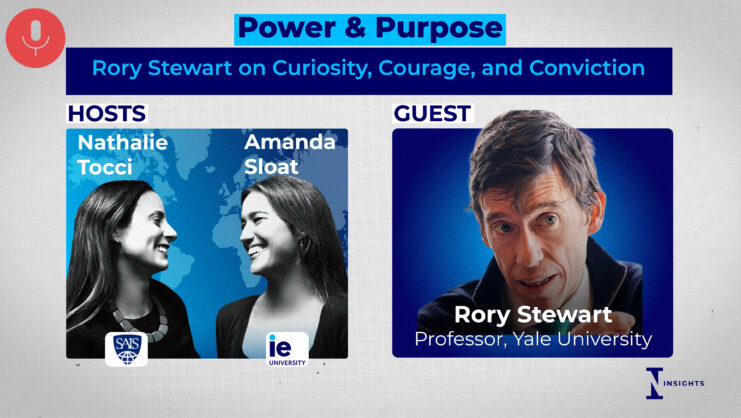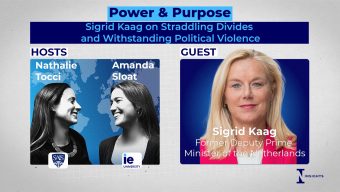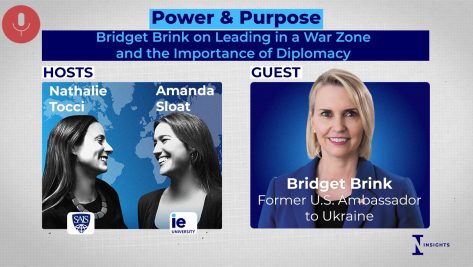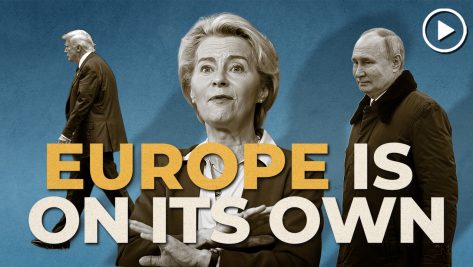How Russia Weaponizes Soft Power
Russian strategists are gaming algorithms and distorting the information domain to weaponize soft power, explains Oscar Jonsson.
© IE Insights.
Transcription
Russia is posing a significant threat to the world order. But many of the things that they are perceived to being good at are domains in which they have been perceived to be losing. Russian strategists have long pondered what the essence of power is in the modern world, and they caught up with many of the things that we think that we are doing that are benign, such as soft power, is something that they believe has been weaponized by the West.
“The ability to get what you want through attraction persuasion is soft power. When the Berlin Wall went down, mothers, their minds have been changed. They’ve been attracted and persuaded. And that’s an example of soft power.”
The Russian twist of soft power is not soft power in the way that we think about it, the power of attraction. It is rather the weaponization of nonmilitary means of power. They believe that the West has been so successful in weaponizing information influence, ideological influence, political pressure, the real, in essence, brainwashing populations to rise up against their corrupt kleptocratic leaders, overthrow them and then pursue a more pro-Western policy.
And this is something that Russian strategists have seen to take out in the information domain. Today, more and more influence is being formed by what you see on a few number of platforms on social media. There’s enormous amount of power invested in the algorithms that choose how you perceive the world. And this is something, of course, again, Russian strategists are thinking, how can we use this?
This is best represented in the so-called “troll farm”, where you have thousands of people sitting, trying to promote the Russian narrative, really gaming the algorithm that shapes what you see and how you perceive the world. Western states have long had a problem of countering Russian information operations because our information domain is premised on the idea of freedom of speech and really the free flow of information, but the integrity of system, which is cybersecurity, where the whole idea of the marketplace of ideas is that bad ideas will weed themselves out.
But the problem is when you have an inorganic amplification of ideas. So, in any society based on freedom of speech, you will have a big distribution of ideas. That is not a problem. That’s actually a feature. The problem is when a certain amount of these ideas are inorganically amplified, so they get the weight which is not relative to their actual standing.
That is how Western societies are being influenced in the information domain. So far, it’s been with a great reluctance among Western governments to deal with the threat in the information space. Rather, so far it’s been fact checking alternatives, etc. But the problem is that those initiatives seldom reach the population that is targeted of information operations. Those are not necessarily likely to go on and read all the fact checking.
We have yet to see a sustained effort in successfully countering Russian disinformation operations. A lot of the responsibility for doing so goes directly to the platforms. And we have seen some change of Facebook, for instance, cooperating with Graphika and mapping out the autonomy of Russian information operations, and also YouTube, where Russian information operations have been very successful in saturating certain search words.
So, for instance “chemical weapons in Syria” you would find maybe seven out of the ten top results would go to Russian state-owned media or quasi state-owned media. Whereas now, in the end, YouTube has started scaling that back a little bit with their algorithms to give less prominence to Russian state-owned television. But that only solves part of the puzzle, because a lot of information operations are not black and white to be foreign or domestic.
The biggest impact of information operations is when they become internalized. They might start from the Russian side, but then when people in Spain, people in the US, people in Europe see them, internalize them, and share them further, then it’s no longer an international or information operation, then it becomes a domestic problem. And then it’s hard to deal with in a society based on the freedom of speech.
Given the worsening security situation after the Russian invasion of Ukraine, we can only expect Russian operations towards the West to amplify in intensity and its scope. That being said, we’re not doomed. There are many ways in which we can strengthen our defenses and the most important one being Western unity. And there’s little that has revived Western unity more than the Russian invasion. Europe, the EU, NATO have never been that closely knit together in the sanctions package, in the support for Ukraine, and additional measures to protect ourselves from Russian aggression.
The biggest challenge to come is maintaining this unity in the face of other crises, such as the cost of living crisis, when the situation will get dire in Europe, in the US. How well we will manage to keep our cohesion, to face security, political threats that go to the core of our societies? That is to be seen.










